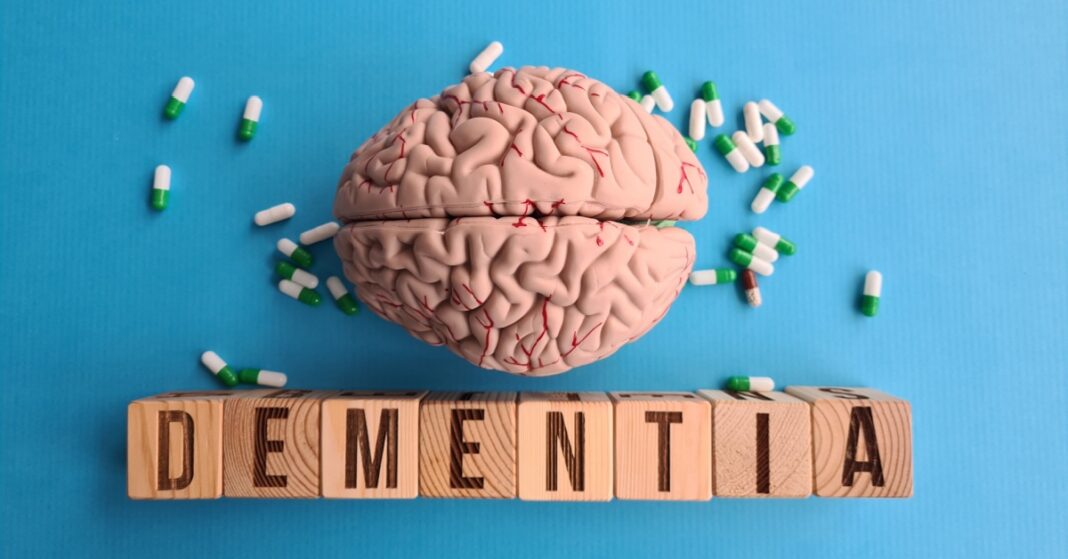It’s a very scary word, as we all know. The idea that you might some day “lose” a loved one, who was still there with you… But GONE! There’s the worry of it ever happening. Then the even deeper worry, that they may never “come back” or recover.
And the worry cuts both ways: you worry for another, or others. And you worry for yourself; will it happen to me? These are not unreasonable fears. But are they based on fact?
Dementia is a complex and debilitating condition that affects millions of people worldwide. It encompasses a range of cognitive impairments that impact memory, thinking, and social abilities severely enough to interfere with daily life. The fears surrounding dementia is profound and multifaceted, touching on various aspects of personal identity, independence, relationships, and overall quality of life.
Big Fear: Memory Loss
One of the most common and immediate fears associated with dementia is the loss of memory. This fear goes way beyond just forgetting names and faces. Memory is integral to a person’s sense of self and continuity; it holds the narrative of one’s life, relationships, achievements, and personal history. So if you lost substantial amounts of this memory, you might lose your identity and the ability to recall significant life events or recognize loved ones.
Fear of Losing Independence
Dementia often leads to a progressive decline in the ability to perform everyday tasks. The loss of independence is a significant fear for many individuals facing the possibility of dementia. Simple activities like cooking, driving, managing finances, and even personal hygiene become increasingly challenging. The dependency on others can be humiliating and frustrating, leading to a loss of dignity.
Fear of Social Isolation
As dementia progresses, social interactions become more difficult. Communication problems, such as difficulty finding words or following conversations, can lead to withdrawal from social activities and relationships. The fear of social isolation is profound, as individuals may feel increasingly disconnected from their community and support networks, leading to feelings of loneliness, depression and anxiety, that further diminishes quality of life.
Fear of Behavioral and Personality Changes
We all know of cases where a profound personality change leads to weird behaviors, mood swings, agitation, aggression, and even at times hallucinations.
One of the worst I know of is a patient repeatedly attacking their spouse. It’s doubly cruel because it does not just mean the permanent end of a loving relationship but it becomes increasingly harder for the caregiver spouse to tolerate this onslaught, leading to strained relationships and emotional pain on both sides.
Fear of Stigma and Misunderstanding
Despite increased awareness, there is still a significant stigma attached to dementia. “Old Granny has gone potty,” may be all the younger generations know. They do not understand and being young and relatively carefree, they tend not to care. Daffy behaviors are very uncomfortable for all of us who do not know the underlying thought processes (there are always sensible thought processes underneath).
Fear of Death and Dying
Most people do not realize that dementia, especially Alzheimer’s, is a near-terminal condition. In fact Alzheimer’s cases survive only about 3 – 8 years on average (but some can live up to 20 years or more). One might say (or think) that given the misery of this diagnosis—in the absence of a cure—a rapid exit is a mercy.
And of course the fear of not being able to communicate end-of-life wishes and the potential for undignified death is particularly troubling.
Best Not To Go There
OK, it might be flippant but I think we can all agree that dementia is not a place we want to go. For all its dreadful imposition, it does seem to be largely avoidable.
1. Number one health factors is diet and nutrition, of course. Avoid ultra-processed food, trans-fats, sugar and highly treated vegetable oils (which Chris Knobbe points out are really “seed oils”, NOT vegetable oils at all). Even olive oil often has large amount of the wrong EFAs. Butter, coconut oil and beef tallow (a favorite in our house) are safest much the most traditional.
2. You have probably read often about keeping your mind active. Puzzles and games are often recommended; learning a language; or a musical instrument, etc. It definitely helps.
3. Exercize. Now here BE CAREFUL. I do not mean more is better; that is very definitely not the case. But enough! According to the Alzheimer’s website, regular exercise can reduce the risk of developing dementia by about 28%. For Alzheimer’s disease specifically, the risk was reduced by 45%. One study looked at the amount of daily activity of us older people. The ones who exercised the least (the bottom 10%) were more than twice as likely to develop Alzheimer’s disease as the ones who exercised the most (the top 10%).
NOTE: It doesn’t just mean tennis, cycling, swimming or jogging! It can also mean a daily activity such as brisk walking, cleaning or gardening. One study found that daily physical tasks such as cooking and even washing up can reduce the risk of Alzheimer’s disease!
This is about as far as the number crunchers go (milligrams, blood levels, hours a week of exercise, how MUCH exertion, how often, etc.)
But there are other factors, hard to quantify, which are clearly just as important… I’m thinking of your social network, connections, a sense of belonging, and feelings of love and affection for and with others around you.
US psychologist William Glasser MD had some beautiful relevant words to say, which I like to quote a lot…
We all have a need (and a right) to love and be loved. We all have a need (and a right) to feel we are worthwhile, to ourselves and to others.
In conclusion, the fear of dementia encompasses a wide range of concerns, from memory loss and loss of independence to social isolation, behavioral changes, stigma, financial burden, and fear of death. These fears are deeply rooted in the potential loss of identity, dignity, and quality of life.
Well, having opened a can of worms, I feel I should return to this topic next week (last before the summer break) and talk about specific remedies for dementia.
Meantime, let me reassure you: starting to be forgetful is not a sure sign of oncoming dementia. I know women in their 7th and 8th decades, who burst into tears when they can’t remember what they did with the car keys. Relax! We all start to be more forgetful. For me, although I have been blessed with a brilliant memory, even I forget stuff all over the place and have done since I was in my 30s. Think of it as a mind full to brimming with joyful, profound, rewarding and exciting experiences, till it overflows!
Chill.
To Your Good Health,
Prof. Keith Scott-Mumby
The Official Alternative Doctor





